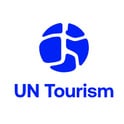UNWTO Members Meet to Rethink Agenda for African Tourism

Tourism leaders from across Africa have met to rethink and realign the sector’s role as a driver of development and opportunity across the region.
At the 66th meeting of the UNWTO Regional Commission for Africa, Member States joined representatives from international organizations and the private sector to focus on opportunities around tourism jobs and investments while also recognizing the vital need to address challenges including the climate crisis.
The UNWTO Agenda for Africa has been adapted. Our vision for African tourism is also one of strong governance, more education and more and better jobs
Tourism in Africa: Bouncing Back
According to the latest UNWTO data, tourism across Africa is returning to strength following the unprecedented crisis caused by the pandemic:
- International arrivals across Africa were back to 88% of pre-pandemic levels at the end of the first quarter of this year.
- At the sub-regional level, North Africa is performing particularly strongly. Here, arrivals were actually 4% higher than the pre-pandemic levels of 2019 in the same period.
- Globally international tourism receipts reached USD 1 billion in 2022, a 50% growth in real terms compared to 2021. Among African destinations with available data, Morocco and Mauritius notably exceeded their 2019 tourism receipts in the first quarter of 2023.
Welcoming delegates, UNWTO Secretary-General Zurab Pololikashvili said: "The UNWTO Agenda for Africa has been adapted. Our vision for African tourism is also one of strong governance, more education and more and better jobs. To achieve it, we aim to promote innovation, advocate for Brand Africa, facilitate travel, and unlock growth through investment and public-private partnerships.
Members meet in Mauritius
UNWTO welcomed delegations from 33 countries, including 22 Ministers of Tourism, two Deputy Ministers and four Ambassadors to the meeting, the most important annual event for the region's Member States.
Reflecting the high level of political support for the event, and for UNWTO's mission to guide tourism development across Africa, the meeting welcomed the attendance of the Prime Minister Republic of Mauritius Pravind Kumar Jugnauth, as well as Deputy Prime Minister, Minister of Housing and Land Use Planning, Minister of Tourism, Republic of Mauritius, and Vice-Chair of the UNWTO Executive Council Steven Obeegadoo. Also in attendance were the African Union Commissioner for Trade and Development, Albert Muchanga, the Secretary-General of the Common Market for Eastern and Southern Africa (COMESA), Chileshe Mpundu Kapwepwe, the Secretary-General of the Commonweath, Patricia Scotland KC, Special Advisor to the UNWTO Secretary-General Lai Mohammed, UN Resident Coordinator for Mauritius and Seychelles Lisa S. Singh, the Resident Representative of the UN Development Programme (UNDP) Amanda Seumaga, and representatives from the African Development Bank, the World Bank, and from IFEMA and the Tui Care Foundation.
Members were provided with an overview of UNWTO's achievements over the past year, with a particular focus on core priorities for tourism in Africa:
- Tourism Investments: UNWTO presented a new set of Investment Guidelines for Mauritius, designed to connected investors with tourism projects in the country. The Guidelines follow on from similar publications focused on Tanzania, with editions for Malawi, Morocco, Mozambique, Namibia, Rwanda and Zambia in development. UNWTO has also held two Tourism Investment Forums in Africa.
- Gender Equality and Youth Empowerment: With tourism recognized for its unique ability to drive gender equality and empower African youth, Members were advised on the progress of the UNWTO Women in Tourism Leadership for Africa Committee, and the Organization's focus on education and training. Key achievements include the Travel Hospitality and Tourism Education Summit (Zambia, May 2023) and plans to open an International Academy in Nigeria.
- Advocating for 'Brand Africa': Members were provided with an update on UNWTO's work to empower African tourism professionals to take charge of the narrative, including through two editions of the Brand Africa Think Tank Dialogue and plans for a UNWTO Media Training Workshop.
In close collaboration with its Member States from across the region, UNWTO has also updated its Agenda for Africa – Tourism for Inclusive Growth. The revised roadmap reflects the new challenges of post-pandemic tourism and the priorities outlined by Members.
Tourism addresses climate action
UNWTO continues to lead tourism's shift to greater sustainability, recognizing the impact of extreme weather events, including the potential for heat waves to cut off the lifeline the sector offers for destinations worldwide. In Mauritius, Members were given an update of UNWTO's work around sustainability, most notably its leadership of the One Planet Tourism Network and the progress of the Glasgow Declaration on Climate Action in Tourism.
Tourism for rural development
Against the backdrop of the Regional Commission meeting, Secretary-General Zurab Pololikashvili enjoyed an official visit to Le Morne, recognized by UNWTO as one of its Best Tourism Villages. The Mauritian village of Old Grand Port was also awarded the accolade.
About UN Tourism
The World Tourism Organization (UN Tourism), a United Nations specialised agency, is the leading international organisation with the decisive and central role in promoting the development of responsible, sustainable and universally accessible tourism. It serves as a global forum for tourism policy issues and a practical source of tourism know-how. Its membership includes 166 countries, 6 territories, 2 permanent observers and over 500 Affiliate Members from the private sector.
Media enquires: [email protected]
